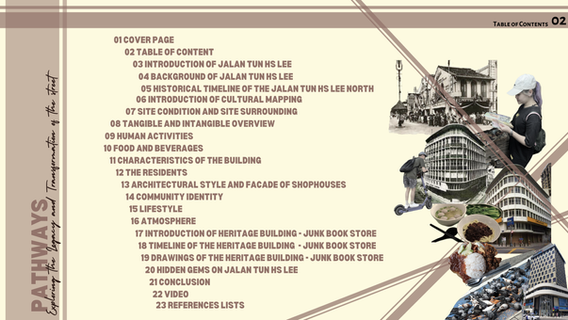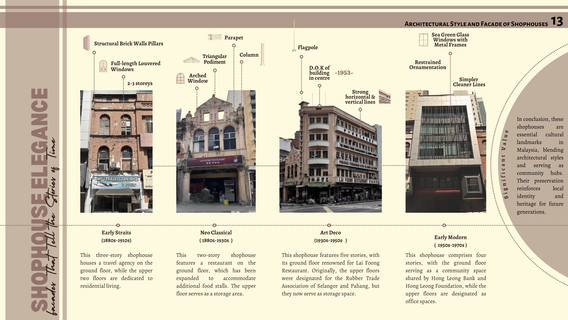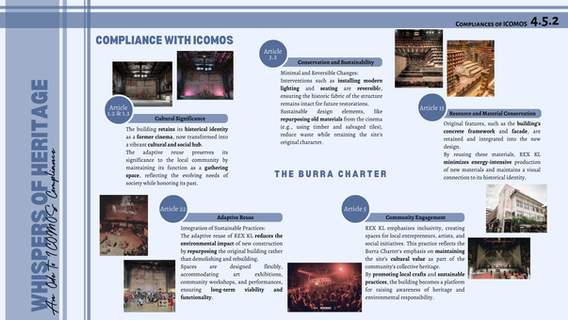HERITAGE CONSERVATION: THEORIES, PRINCIPLES AND PRACTICE
ARC61104
PROJECT 1
PROJECT 1
CULTURAL MAPPING + SITE STUDY (50% GROUP)
PROJECT BRIEF
INTRODUCTION
This assignment seeks to develop a solid understanding and appreciation of heritage and conservation practices through site visits and cultural mapping.
Cultural mapping is a methodical tool that engages communities in identifying and documenting local cultural assets, with the aim of using this information to inform community-driven strategies, planning processes, or other initiatives.
The study area focuses on the Central Market, Medan Pasar, and Petaling Street regions.
OBJECTIVES
Introduce students to the fundamental principles and concepts of heritage conservation and documentation
Recognize and comprehend the processes involved in heritage conservation and management
TASKS
Group Task (30%)
• The slide presentation must include a cover page, title page
• 15 min verbal presentation
• 2 min video presentation
• APA references and citations
Individual Task (20%)
• in a REPORT format
• Please provide APA references and citations


1.0 Discipline Specific Knowledge
3.0 Thinking And Problem Solving Skills
I gained a deeper understanding of heritage conservation principles, focusing on the importance of preserving and documenting cultural assets. I explored key conservation theories, methods, and processes, while also becoming familiar with international standards such as ICOMOS and the charters that shape conservation practices.
I developed my ability to analyze and address complex heritage conservation challenges.
I learned to apply critical thinking when conducting site studies and cultural mapping, assessing the historical significance of a location, and identifying potential conservation issues.
REFLECTION
This project further deepened my understanding of the importance of preserving cultural heritage. I learned how cultural mapping can be used as an effective tool to document and engage communities in the identification of local cultural assets, ensuring that their heritage is accurately recorded and protected.
By focusing on Jalan Tun HS Lee, I gained valuable insights into the historical fabric of the area and how it relates to broader conservation efforts.
The precedent study also offered a practical perspective on how different conservation methods have been applied in various contexts.
Learning about ICOMOS, the charters, and various conservation theories provided me with a stronger theoretical foundation, which I can apply in future heritage conservation projects.
Overall, this project not only enhanced my technical skills but also strengthened my appreciation for cultural preservation.










































